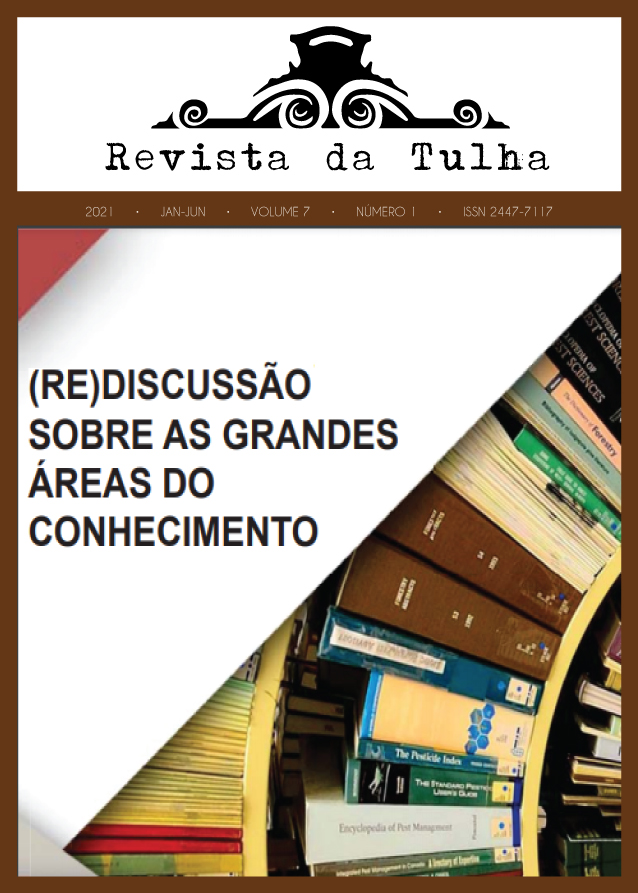The benefits of musical teaching in human training and development
DOI:
https://doi.org/10.11606/issn.2447-7117.rt.2021.189067Keywords:
Musical Teaching, Human Development, Benefits, Musical CognitionAbstract
The text in question aims to demonstrate to what extent music, as an area of knowledge, can contribute to the formation and integral development of individuals and which areas of the physical and psychic body can be activated in contact with music. The theoretical foundation is based on texts by Maria Cândida Moraes (2003), A. Storr (2002), S Viellard and E. Bigan (2005), among others, mostly researchers focused on musical cognition.
Downloads
References
AGUDELO, Graciela; SOTO, Gabriela. Incidencias de La música em lós procesos cerebrales. Consejo de La música em México. Forum panamericano y Coloquio sobre Educacion Musical. Mexico 2002. Disponível em: www.iieh.com/doc/doc200209150300.htm1 , acessado em 30 abril 2012.
BIGAND, Emmanuel. Ouvido Afinado. Viver mente & cérebro. Revista de Psicologia, psicanaláse, neurociências e conhecimento, ano XIII, n. 149, junho de 2005, p. 59-63.
BRITO, Teca Alencar de. Koellreutter educador – o humano como objetivo da educação musical. São Paulo: Peirópolis, 2001.
CAMPBELL, Don. O efeito Mozart. Rio de Janeiro: Rocco, 2001.
CAMPESATO, Lilian & IAZZETTA, Fernando. Som, Espaço e Tempo na arte sonora. XVI Congresso da ANPPOM. Brasília, 2006, p. 775-777. Disponível em: HTTP: // www.anppom.com.br/anais/anais congresso_ anppom_ 2006/CDROM/com/c-248.pdf Acesso em 24 de abril de 2009.
CLAIR Alicia Ann e MEMMOTT Jenny. Therapeutic Uses of Music with Older Adult. American Music Therapy Association, 2º Ed. 2008.
DILTHEY, Wihelm. Psicologia e Compreensão: Ideias sobre uma Psicologia Descritiva e Analítica. Lisboa. Edições 70, 2002.
FREGTMAN, Carlos. Corpo, música e terapia, 10ed. São Paulo, Cultrix, 1995.
GAINZA, Violeta Hemsy de. Estudos de psicopedagogia musical. São Paulo: Summus, 1988.
GARDNER, Howard. As artes e o desenvolvimento humano. Porto Alegre: Artes Médicas Sul, 1997.
GARDNER, Howard. Educación artística y desarrollo humano. Barcelona: Paidós Educador, 1994.
LIMA, Sonia Albano. A relação da música com a linguagem verbal. In: Uma metodologia de interpretação musical. São Paulo: Musa Editora, 2005, p. 51-80.
LIMA, Sonia Albano. Música e Cosmologia. IN: LIMA, Sonia Albano (org) Uma Leitura transdisciplinar do fenômeno sonoro. São Paulo: Editora Som& FMCG. 2007, p. 9-36.
MIRANDA, Maria Luiza de Jesus & GODELI Maria Regina C. Souza: Música atividade física e bem-estar psicológico em idosos. Revista Brasileira de Ciência e Movimento, v11. N4, pag 87-94.2003.
MORAES, Maria Cândida. Educar na biologia do amor e da solidariedade. Petrópolis, RJ: Vozes, 2003.
ROEDERER, Juan G. Música, Física, Psicofísica e Neuropsicologia: uma abordagem interdisciplinar. In: Introdução à física e psicofísica da música. -São Paulo: Editora da Universidade de São Paulo, p. 17-34. 1998. Tradução portuguesa de Alberto Luis da Cunha.
ROWELL, Lewis. Introduccion a la filosofia de la musica: Antecedentes históricos y problemas estéticos. Barcelona: Gedisa. 2005. Tradução para o espanhol de Miguel Wald.
STORR, Anthony. La música y la mente. Barcelona: Editora Paidós, 250 p. Tradução espanhola de Verônica Canales Medina. 2002.
VIEILLARD, Sandrine. Emoções Musicais. Viver mente & cérebro. Revista de Psicologia, psicanaláse, neurociências e conhecimento, ano XIII, n. 149, junho de 2005, p. 52 a 57. São Paulo: Dinap. S/A.
Downloads
Published
Issue
Section
License

This work is licensed under a Creative Commons Attribution 4.0 International License.
Authors retain copyright and grant the journal the right to first publication, with the work licensed under the Creative Commons Attribution License CC-BY-NC:
This work is licensed under a Creative Commons Attribution 4.0 International License.



